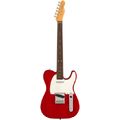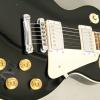What startles me is the following: Most people i played with in a pop/rock context do not read. If i ask them if they might be interested to learn i usually get responses that range from "that would be nice but i don't have the time or talent" to "i have no desire to do that crap". The former being polite, the latter being honest. At the same time these people are [i]not [/i]master musicians nor incredibly talented (whatever that is). And in many cases they are stuck in their development, often for a long time. They learn songs from each other or by ear and in the latter case often with help of chord analyses from the internet but development is slow.
If i propose to that learning a new skill like reading or theory might get them unstuck i get the same answers as delivered here. "There are so many musicians that never learned to read that play so well so i don't need to either" etc etc. And that might apply to a few of them having the right prerequisites or being prepared to put a lot of effort in (and they will get unstuck by themselves anyway) but not the vast majority. So the ones needing new skills the most, reject them the hardest. For them all the arguments presented here are just mere excuses not to learn or develop to add to their already large arsenal. And that is truly a sad thing.
If i propose to that learning a new skill like reading or theory might get them unstuck i get the same answers as delivered here. "There are so many musicians that never learned to read that play so well so i don't need to either" etc etc. And that might apply to a few of them having the right prerequisites or being prepared to put a lot of effort in (and they will get unstuck by themselves anyway) but not the vast majority. So the ones needing new skills the most, reject them the hardest. For them all the arguments presented here are just mere excuses not to learn or develop to add to their already large arsenal. And that is truly a sad thing.







